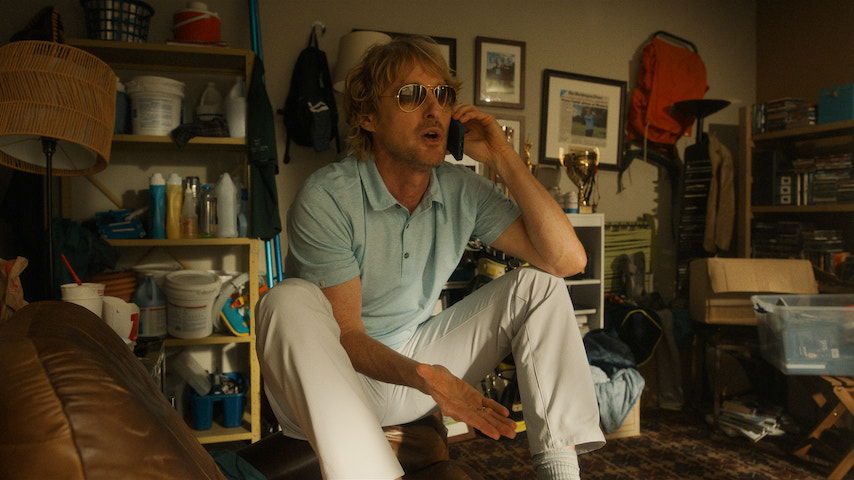With Stick, Owen Wilson gets caught in the sand trap of shallow television
Apple TV+'s new sports comedy feels frustratingly half-hearted.
Photo: Apple TV+
The tagline for Apple TV+’s Stick is “Take a big swing.” It’s too bad the reason the show doesn’t work is because of how much it fails to live up to that idea creatively, seemingly content to take little, half-hearted swings at comedy, character, and emotion, most of which never even make contact with the ball.
The series starts promisingly enough with a premiere that centers star Owen Wilson in a role he plays well: the lovable loser with one more chance to win. Directed by Jonathan Dayton and Valerie Faris of Little Miss Sunshine fame, it’s a reasonably entertaining table setter for a meal that never comes. It quickly becomes apparent that Stick is a show that didn’t get out of the concept phase, leaning into melodrama and shallow characters instead of giving viewers anything honestly emotional or even funny to hold onto. Stick is clearly designed to hit the same audiences as Ted Lasso and Shrinking (other series about middle-aged guys overcoming life’s trauma to be better versions of themselves, which is truly becoming a part of the Apple TV+ brand), but it only reminds one how much better those shows are at what they do.
Wilson plays Pryce Cahill, an average guy who works at a sporting-goods store in Indiana. He has modest struggles with his ex-wife (portrayed by the under-utilized Judy Greer), but he seems like a decent dude dealing with barely hidden grief, which we quickly learn is due to the unimaginable loss of a child. When he hears a young golfer named Santi (Peter Dager) taking swings off the tee, he can sense immediately that there’s something special in that swoosh sound. When he challenges him to hit a few targets on the driving range, he realizes that Santi’s distance and accuracy place him firmly in the “phenom” category and he decides to try to hitch his wagon to this new Tiger Woods. This puts him on the road with Santi, Pryce’s buddy Mitts (Marc Maron), Santi’s mom Elena (Mariana Treviño), and, before long, a character who serves as a love interest and caddy for Santi named Zero (played by the show-stealing Lilli Kay).
Zero is indicative of many of the writing problems on Stick. While Yellowstone and Your Honor vet Kay does a lot with very little, Zero is a character who we only really learn anything about in the context of the roles they play in Pryce and Santi’s lives. Pryce basically hires them to serve as a conduit to get his advice to the stubborn Santi, who then falls for Zero before treating them like absolute garbage when his feelings get hurt. Everything about Zero’s arc feels shallow and simplified for comedy television instead of like any actual exploration of generation gaps, young love, and even gender roles, issues that this show constantly flirts with but doesn’t saying anything about.
 Keep scrolling for more great stories.
Keep scrolling for more great stories.
